Saudi Arabia hosts the 48th meeting of the Board of Trustees of the Arab Institute for Training and Statistical Research
The city of Jeddah will host the 48th meeting of the Board of Trustees of the Arab Institute for Training and Statistical Research. This session will take place on October 4 -5, 2023, and will discuss common statistical issues with the aim of providing accurate data to support comprehensive economic and social development plans at the regional Arab level. This will be achieved by supporting the official statistical systems in Arab countries to fulfill their developmental duties at both national and regional levels in providing accurate data and indicators that contribute to enhancing opportunities for better developmental policy-making.
The official heads of Arab statistical centers will participate in these meetings, with Saudi Arabia hosting this 48th session as a confirmation of its leading role in the Arab world and its commitment to enhancing Arab communication and joint work in all fields, especially in the field of Arab statistical work. This aims to exchange experiences among member countries and provide statistical data to support development plans.
The agenda includes various activities aimed at enhancing the production and dissemination of accurate statistical data in accordance with international methodologies and standards. Additionally, there will be efforts to develop a strategic vision to improve the level of Arab statistical work, improve the technical and scientific capabilities of human resources in the official statistical agencies of Arab countries, exchange statistical knowledge and experiences to strengthen Arab solidarity and cooperation, and develop high-quality statistics production to drive development forward.
Saudi Arabia hosts OIC Statistical Commission 12th session.
Saudi Arabia will host the 12th session of the Organization of Islamic Cooperation Statistical Commission (OIC-StatCom). The meetings of this session will be held in the city of Jeddah and will last for two consecutive days October 3-4, 2023. The meeting will be attended by the heads of official statistical centers in the countries of the Organization of Islamic Cooperation. This is the first time that the meetings of this commission are held outside the headquarters country (Turkey). Saudi Arabia's hosting of this session reflects its international status and its Arab and Islamic position, affirming its keenness to enhance communication and joint work among Islamic countries to provide statistical data for the support of development plans and exchange experiences among member countries.
The 12th session of OIC-StatCom aims to develop the technical and scientific capabilities of statistical personnel in the official statistical agencies of member countries and exchange statistical knowledge and experiences to support the member countries in producing high-quality statistics, guided by specific objectives and principles in order to enhance solidarity and cooperation among Islamic countries.
The agenda comprises of a number of activities meant to improve the production and dissemination of precise and updated statistical data in compliance with international standards and procedures. Additionally, efforts will be made to develop a strategic vision to improve the level of statistical systems, implement and monitor short, medium, and long-term plans to achieve this vision, and enhance the technical capabilities of national statistical agencies in Islamic countries.
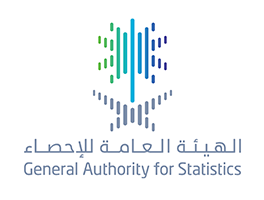
GASTAT adopts chain-linked methodology in calculating real GDP of the Kingdom
Based on its role in developing the statistical sector, the General Authority for Statistics adopted the chain-linked methodology in the national accounts to calculate the real GDP. The publication of Q4, 2023 and the annual publication of the same year will be published using the new methodology instead of the previous methodology that was based on utilizing the fixed base year.
Saudi Arabia is the first country in the Gulf and Arab regions and among the first G20 countries that implement the chain-linked methodology. This dynamic methodology is thought to be a useful tool for estimating the real growth rates of national accounts and for measuring economic growth rates using weights and prices from the prior year as a benchmark to provide measurements within adjacent time periods. It accurately reflects the current economic conditions of any country that employs it.
Expert statisticians in the field of national accounts have pointed out that the chain-linked methodology takes into account the impact of price changes, flexibility in dealing with economic activities along with their continuous updating and accurately reflects economic changes. It also considers production structure and consumption patterns, allowing for clearer international comparisons. International statistical organizations and bodies concerned with national accounts systems urge countries worldwide to adopt the chain-linked methodology instead of the previous methodology that used a fixed base year for weights and prices, in order to accurately reflect real growth at the national level and monitor developments and achievements effectively.
It is worth mentioning that the Gross Domestic Product publication is one of the releases issued by the General Authority for Statistics on a quarterly and annual basis to provide estimates of the GDP for the relevant period, expenditure components, measure the contribution of economic activities and various regulatory sectors, as well as provide modern annual economic indicators such as GDP growth rates, relative contributions of economic activities, and regulatory sectors to the GDP according to the latest international systems. It also includes many analytical tables highlighting the tracks of the national economy.
National accounts publications also contribute to meeting the requirements of the Kingdom Vision 2030, regional requirements to understand the national economy, including the statistical center of the Gulf Cooperation Council, the Arab Monetary Fund, the League of Arab States, in addition to international requirements such as those of the World Bank, the International Monetary Fund, the Organization for Economic Cooperation and Development, and others. The General Authority for Statistics website provides more details about its statistical products.
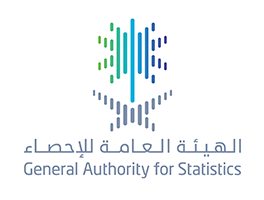
الهيئة العامة للإحصاء تشارك في اجتماع اللجنة الفنية الدائمة للإحصاء
The Permanent Technical Committee for Statistics of the Arab League held its forty-ninth meeting in Cairo on September 26-27 of this year at the headquarters of the General Secretariat of the Arab League. The meeting was attended by delegations representing official Arab statistical agencies, as well as a number of specialized Arab organizations in the field of statistics. The delegation of Saudi Arabia was led by Dr. Fahad bin Abdullah Al-Dossari, President of the General Authority for Statistics.
During the sessions, various technical and administrative topics were discussed, including monitoring the implementation of recommendations from the previous committee meeting, highlighting statistical activities carried out by Arab official statistical agencies in the past period, as well as reports and recommendations from subcommittees.
It is worth mentioning that the Permanent Technical Committee for Statistics aims to enhance Arab statistical capabilities, exchange experiences, information, and technical advice among member countries, and provide the necessary statistical data and indicators to serve the common Arab statistical work.
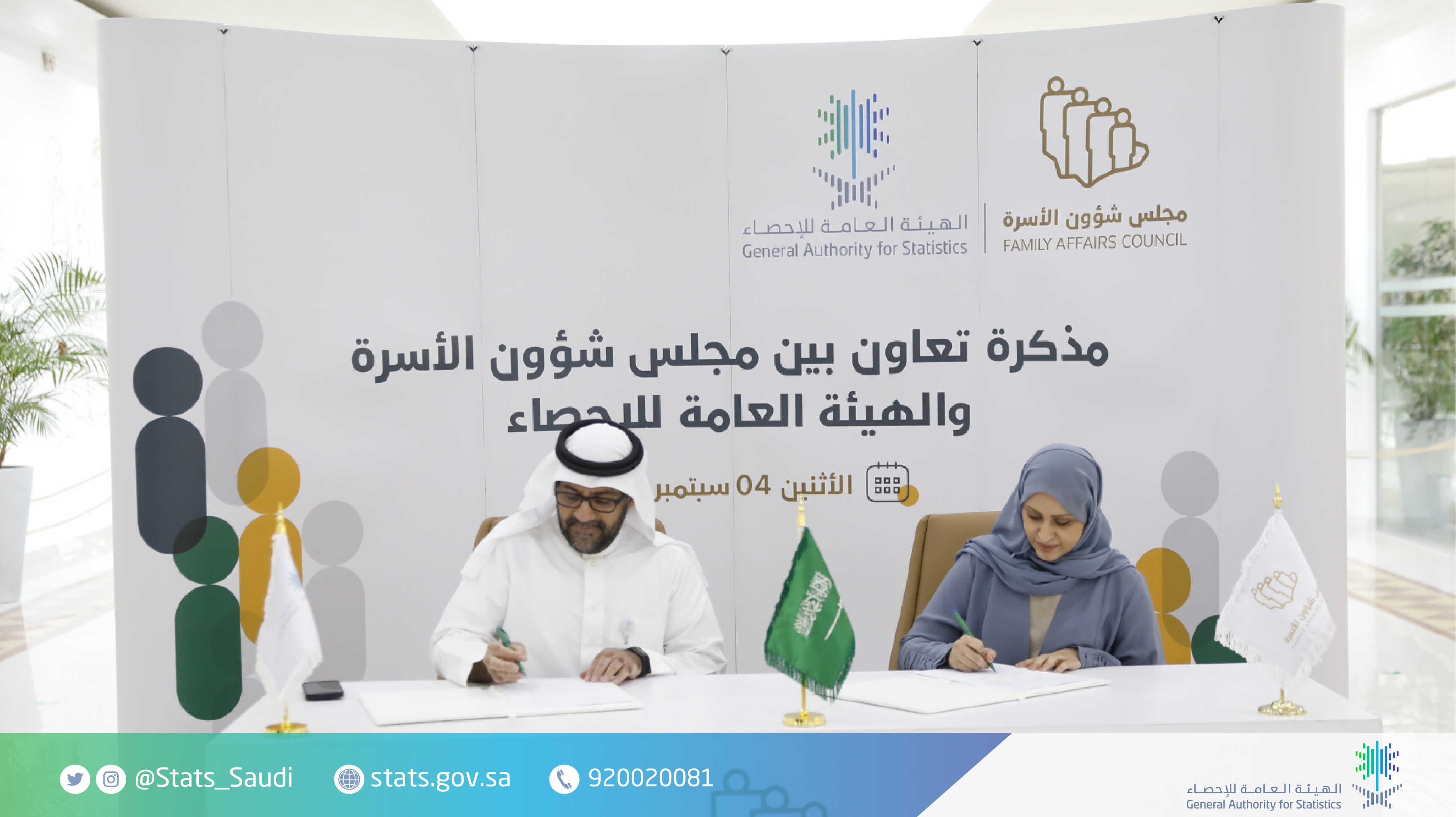
الهيئة العامة للإحصاء ومجلس شؤون الأسرة يوقعان مذكرة تعاون مشترك بينهما
The General Authority for Statistics and the Family Affairs Council signed a memorandum of cooperation yesterday, Monday September 4, 2023. The memorandum aims to enhance integration between the two entities in their respective fields of expertise, establish a general framework for joint activities and tasks, and develop their institutional capacities to serve common interests and goals. The memorandum was signed at the headquarters of the Family Affairs Council in Riyadh. Dr. Fahad Al-Dossari, President of the General Authority for Statistics, signed on behalf of the authority, while Dr. Maimouna bint Khalil Al-Khalil, Secretary-General of the Family Affairs Council, signed on behalf of the council.
The memorandum highlights the exchange of information and data between the two parties - each according to its expertise - in areas of mutual interest, cooperation in issuing statistical publications related to families, exchanging support and technical and knowledge expertise in areas of mutual interest, as well as exchanging advice in the areas of expertise of each party. This includes exchanging research and studies, publications, and making it possible for the staff of both parties to participate in training courses, seminars, scientific conferences, and workshops related to the areas of mutual cooperation agreed upon.
GASTAT completes the project of Transition to Accrual Accounting
The team of the project of transition to accrual accounting was recognized by Dr. Fahad bin Abdullah Al-Dossari, President of the General Authority for Statistics, for meeting the project's requirements and completing its main phases. This helped GASTAT to transit to the accrual accounting principles and be involved in the release of the first national unified financial center.
It is worth mentioning that the transition to accrual accounting and the adoption of international accounting standards in the public sector are initiatives stemming from the National Transformation Program, which is adopted by the Ministry of Finance through its agency for financial and accounting affairs. The project will help provide complete, accurate, and timely information about the financial center, and results of the entities’ activities and cash flows. It will also enhance supervision over revenues, expenses, assets, and liabilities, as well as develop financial departments in government entities and support decision-making processes.
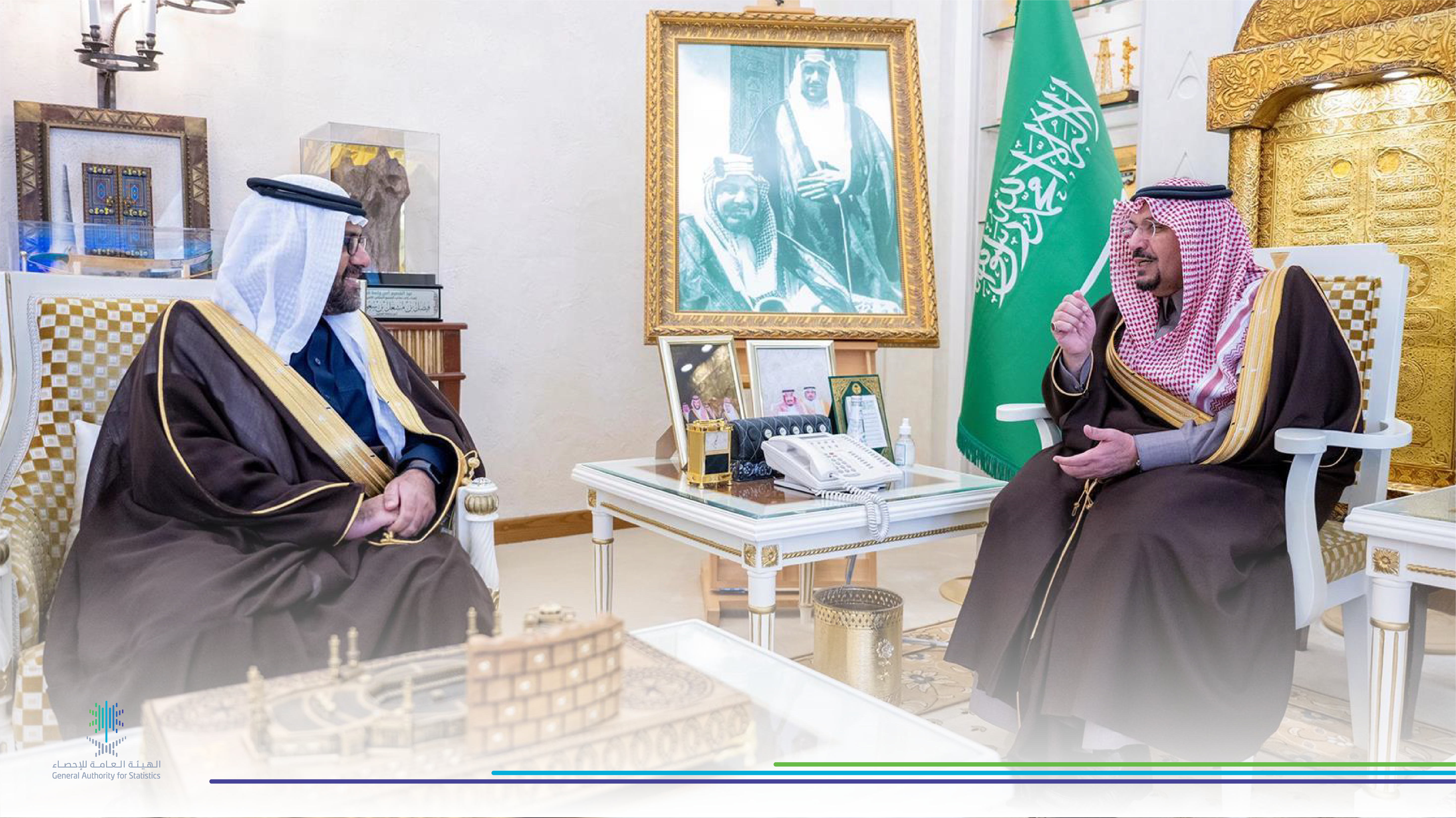
أمير منطقة القصيم يستقبل رئيس الهيئة العامة للإحصاء
Today, His Royal Highness Prince Dr. Faisal bin Mishal bin Saud bin Abdulaziz, Prince of Qassim Region, received in his office Dr. Fahad Al-Dossari, President of the General Authority for Statistics.
His Royal Highness the Governor of Qassim praised the role played by the General Authority for Statistics as the only official statistical reference for implementing, supervising, and regulating the statistical work in the Kingdom of Saudi Arabia, as it provides statistical products in social, economic, and environmental fields to support policymakers and decision-makers in advancing the implementation of development plans.
The meeting included a review of the results of statistics and reports prepared by GASTAT in collaboration with all government entities and stakeholders in the region, providing accurate and comprehensive statistical data that cover all aspects of social, economic, and environmental dimensions in Qassim region.
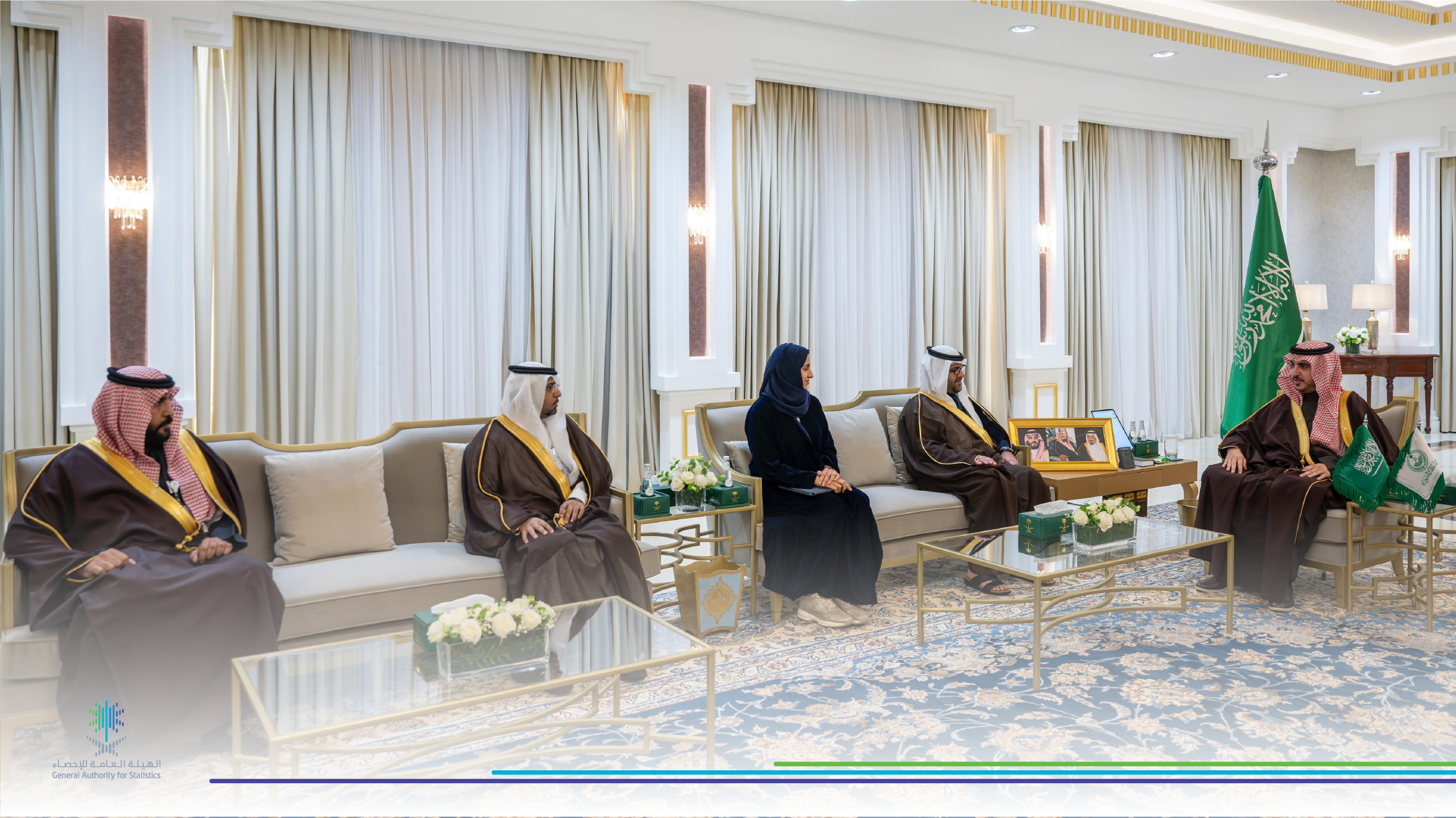
أمير منطقة الجوف يستقبل رئيس الهيئة العامّة للإحصاء
Today, His Royal Highness Prince Faisal bin Nawaf bin Abdulaziz, Prince of Al-Jouf Region, received in his office Dr. Fahad bin Abdullah Al-Dossari, President of the General Authority for Statistics, along with several staff members, and GASTAT’s branch director in the region, Engineer Jarallah Al-Shamrookhi.
During the reception, His Royal Highness was briefed on the works and efforts of GASTAT in providing population and housing statistics at the Kingdom level, specifically concerning Al-Jouf region, its provinces, and affiliated centers.
He also listened to an explanation about the role of GASTAT in providing statistical data to support the development of the region, emphasizing the importance of its role and the information it provides to contribute to the development of all regions.
His Royal Highness, the Prince of Al-Jouf, highlighted the wise leadership's interest in developing and enhancing the regions, praising the role of GASTAT in providing data and indicators that assist in making future decisions and directions for urban, population, and economic development, achieving goodness and prosperity for the country and its citizens.
Dr. Fahad Al-Dossari expressed his gratitude and appreciation to His Royal Highness the Prince of Al-Jouf for his constant attention and continuous follow-up to GASTAT’s work in the region and his support for the branch's activities.
GASTAT Participates in First Conference of Saudi Association for Statistical Sciences
Dr. Fahad bin Abdullah Aldossari, the President of the General Authority for Statistics, participated in the opening of the First Conference of the Saudi Association for Statistical Sciences, which was held in Madinah on Sunday, 11 February 2024, under the theme "Statistics and Health." The conference aimed to discuss the latest developments in the field of statistical data and enhance the desired integration with health authorities in issuing health and social indicators and data that contribute to supporting policymakers and decision-makers.
In his speech at the conference, Dr. Aldossari expressed his sincere thanks and appreciation to the Saudi Association for Statistical Sciences and the Saudi Society for Medical Education for their excellent organization and reception, while also commending the efforts made to ensure the success of the conference.
Dr. Aldossari stated, "For the first time, the General Authority for Statistics (GASTAT) issued six specialized health statistical products at the end of 2023, comprising more than 98 health indicators. GASTAT is keen to adopt a unified working methodology that aligns with the nature of each statistical product, by relying on the Statistical Business Procedures Manual, which is in line with the standards and procedures adopted by international statistical organizations and agencies."
He further explained that the role of GASTAT lies in conducting several specialized health surveys, including the Health Condition Survey, Women's Health and Reproductive Care Survey, Health Determinants Survey, and Health Care Survey. He emphasized that GASTAT collected comprehensive and accurate data from all regions of the Kingdom, following an approved methodology for each survey, and applied best practices, methods, and quality models in data collection and analysis to produce the required health statistical publications and indicators.
GASTAT’s President affirmed that the Authority is committed, within its strategy, to developing its statistical products in general, and health products in particular, in order to provide high-quality health data and indicators that can be relied upon to support all efforts aimed at developing healthcare services. This support aligns with the Sustainable Development Plans in the healthcare sector in the Kingdom and meets international health requirements that contribute to enhancing the Kingdom's international ranking.
It is worth mentioning that the First Conference of the Saudi Association for Statistical Science is sponsored by the Prince Sultan Military Medical City and is held for the first time over a period of 3 days, from 11 February to 13 February 2024. The conference includes several main sessions and workshops on analyzing health insurance data, statistical analysis of medical data using the (R) program, advanced data analysis using the (MS Excel) program, as well as the presentation of scientific medical statistical posters by a group of specialists and speakers, with more than 24 scientific posters and 300 participants.
Appointment of Ms. Sara Alsuhaimi and Renewal of Mr. David Kalisch Membership in GASTAT Board of Directors
The Council of Ministers, in its session held yesterday, Tuesday, 6 February 2024, in Riyadh, issued a resolution appointing Ms. Sara Alsuhaimi as a member, and renewing the membership of Mr. David Kalisch in GASTAT’s board of directors as specialists in the field of GASTAT's work, for a period of three years.
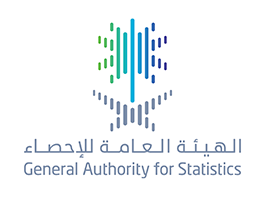
"الإحصاء" تصدر مؤشر الاستثمار الأجنبي المباشر لعام 2022 والربع الثالث 2023 م
The General Authority for Statistics GASTAT has released the annual statistics publication of foreign direct investment FDI for the year 2022 and for Q3 of 2023 in Saudi Arabia. This is the first time GASTAT has announced these indicators after adopting its calculation methodology in October of last year.
According to the publication's results, the total balance of FDI in Saudi Arabia reached 762 billion SAR at the end of 2022. The total inflows of FDI in Saudi Arabia amounted to 123 billion SAR, while the total outflows reached 17 billion SAR. The net inflows of FDI in Saudi Arabia amounted to 105 billion SAR.
In the same context, GASTAT published the statistics of FDI for Q3 of 2023, indicating that the total inflows of FDI in Saudi Arabia amounted to 17 billion SAR. The total outflows of FDI in Saudi Arabia reached 5 billion SAR, while the net inflows of FDI in Saudi Arabia amounted to 11 billion SAR.
On this occasion, Dr. Fahad bin Abdullah Aldossari, the President of the General Authority for Statistics, affirmed that Saudi Arabia's announcement of FDI for the first time adds a new global standard to improve the quality and transparency of the methodology for calculating FDI statistics. This is achieved by providing globally leading levels of transparency and governance.
He also highlighted the joint efforts with the International Monetary Fund in this project and the integration of roles between the Central Bank and the Ministry of Investment to reach the methodology adopted by GASTAT for calculating the index. He explained that it will enable investors to make investment decisions based on reliable results that support decision-makers and policymakers, and to design investment policies that attract more foreign investments and inform investors about the best investment opportunities in Saudi Arabia.
It is worth mentioning that the new methodology was adopted after alignment with the International Monetary Fund in the new methodology and the confirmation of the United Nations Conference on Trade and Development (UNCTAD) to apply the best practices and international standards according to the International Monetary Fund's Balance of Payments Manual. In addition, the World Bank supported the recommendations presented by the International Monetary Fund in its recent report on Saudi Arabia, which form the basis of the new methodology.
The new methodology will contribute to enhancing governance levels and improving the quality of transparency in the statistical data and information for calculating direct foreign investment indicators as an investment destination in Saudi Arabia.
FDI Index includes about 19 new indicators as part of the new methodology approved by the International Monetary Fund, including the balance and inflows of direct foreign investment by economic activity, investing countries, and regions of Saudi Arabia for the period from 2007 to 2022.
KSA ranks 25th globally and first in the Gulf in SPI
The ranking of the Kingdom of Saudi Arabia, represented by the General Authority for Statistics (GASTAT), has jumped 25 places in the Statistical Performance Index (SPI) issued by the World Bank. It ranked first in the Gulf and advanced four places in the same index among the G20 countries, coming in at 15th place after previously being ranked 19th in the 2019 assessment.
The World Bank recently announced the results of the assessment of the maturity and performance of statistical systems (SPI), which included 186 countries. The assessment focuses on five main dimensions distributed over more than 52 indices, covering data sources, statistical products and services, and infrastructure. The Kingdom achieved 100% in the data use dimension and scored 80.8% in the assessment, a significant increase from the previous score of 63.4% in 2019. It was the highest progress among the G20 countries, with a progress rate of 17.4%.
Dr. Fahad bin Abdullah Aldossari, the President of the General Authority for Statistics, explained that the support and empowerment received by GASTAT in the past period contributed to achieving strategic transformations in the statistical production and technical infrastructure fields. This had a great impact on enhancing the statistical role played by GASTAT and achieving progress in comparison to many official statistical agencies around the world. It also contributed to building and calculating high-quality indices and statistical data that lauded by international organizations specialized in the statistical field. Moreover, it supported all sectors of the state with statistical data that assist decision-makers and policymakers. He emphasized the importance of continuous collaboration with partners to further develop statistical production.
It is worth mentioning that this significant progress achieved by the Kingdom in the assessment of the national statistical agencies' performance index (SPI) is a continuation of the efforts of GASTAT in implementing the statistical transformation that aligns with the national transformation in various sectors and fields, in line with Saudi Vision 2030. GASTAT is making relentless efforts to anticipate the future in light of its transformation strategy, which includes developing the technical infrastructure, improving field surveys and statistical products, as well as enhancing partnerships with the government, private, and non-profit sectors. It also works on improving data availability and meeting statistical requirements at the local, regional, and international levels, while focusing on increasing customer satisfaction through continuous development of data presentation and statistical indices interactively and smoothly.
In the same context, this achievement reflects the level of support and empowerment GASTAT receives from the wise leadership and the great confidence in its national role in providing statistical data, building, and measuring national statistical indices that support sustainable development plans and the development of the Saudi economy, and improving the quality of life in the Kingdom.
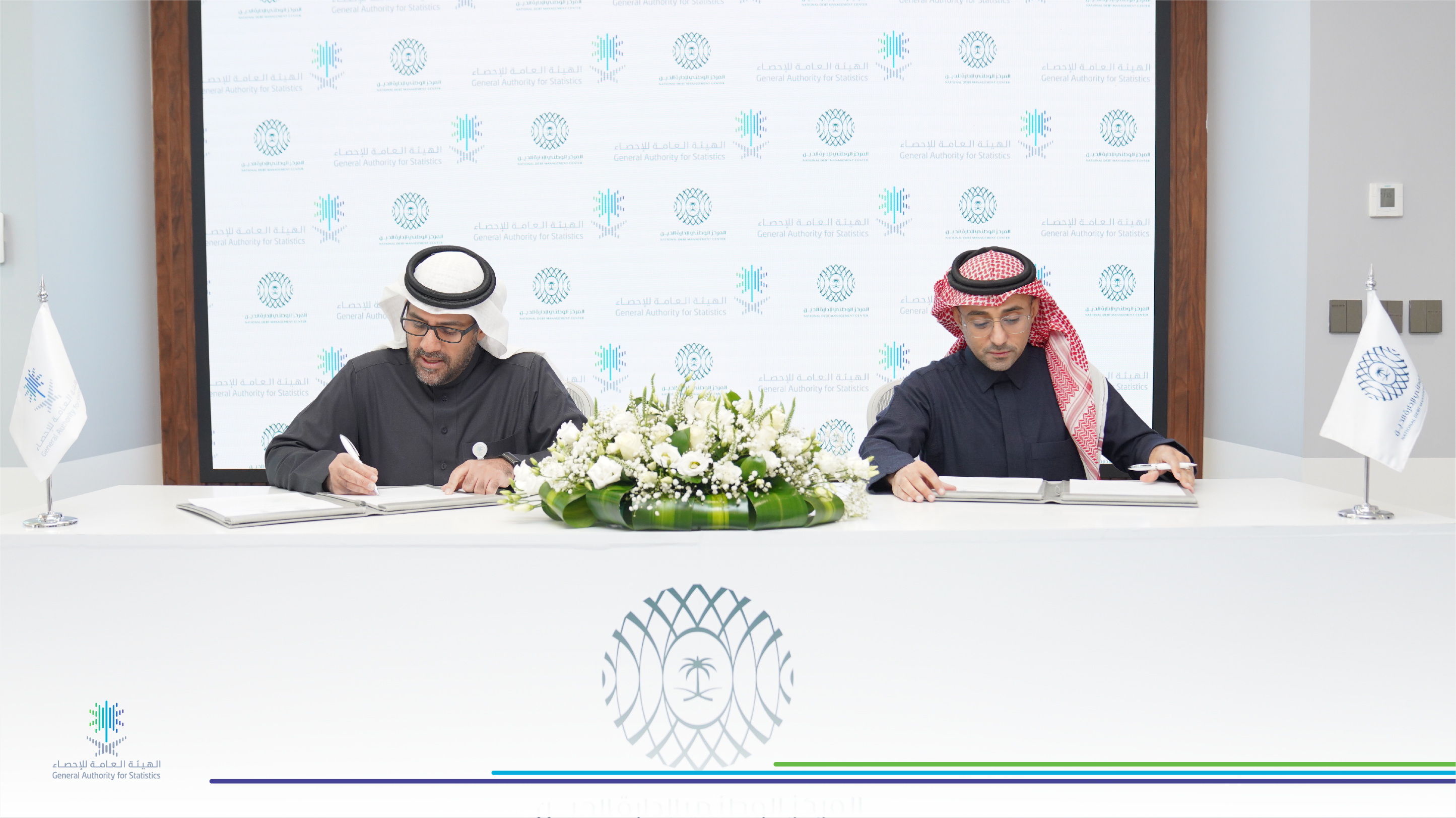
"الهيئة العامة للإحصاء" توقع مذكرة تعاون مع "المركز الوطني لإدارة الدين"
The General Authority for Statistics (GASTAT) has signed a memorandum of cooperation with the National Debt Management Center aimed at enhancing collaboration, strengthening coordination and integration of efforts in their respective fields of expertise, It also aims to establish a general framework for joint activities and tasks. The memorandum was signed by Dr. Fahad bin Abdullah Al-Dossari, President of the General Authority for Statistics, and Mr. Hani bin Madini Al-Madini, CEO of the National Debt Management Center.
The memorandum included several tracks, including the exchange of support, technical and scientific expertise according to each party's specialization, as well as advice in their respective fields of expertise, including research, studies, and publications. In addition, it provides an opportunity for the employees of both parties to participate in developmental courses, seminars, scientific conferences, and workshops.
In this context, Al-Dosssri indicated that the creation and measurement of statistical indicators is a key component of the statistical work that is necessary to achieve the objectives of Saudi Vision 2030. He underlined how crucial it is for GASTAT and the National Debt Management Center to collaborate in order to provide statistical data and indicators, as well as how government entities should integrate with one another. This will positively impact the success of collaborative efforts in line with GASTAT's ongoing development and transformation. In order to improve the economic and social statistical products that support the country's economy and sustainable development, he said that this partnership will help both parties meet their requirements and understand statistical developments and future trends.
On his part, Al-Madani emphasized the significance of this memorandum in the framework of enhancing the knowledge sharing in related fields amongst government sectors. This will improve the ability to analyze data required to demonstrate the Kingdom's strong credit position.
GASTAT Launches the Comprehensive Economic Survey
As part of its efforts to provide statistical data and indicators that contribute to the development of the Saudi economy and support the diversification of its sources, the General Authority for Statistics (GASTAT) launched the Comprehensive Economic Survey, which aims to provide accurate statistical data and indicators to update the base year in the Gross Domestic Product, in addition to updating the statistical business record. Additionally, the survey aims to provide the necessary statistical data that contribute to identifying opportunities and defining challenges in economy development.
GASTAT demonstrated that this survey will help provide statistical data that enables decision-makers, policymakers, and investors to deal with data for the purposes of local, regional, and international comparisons, as well as for conducting studies and analyses.
GASTAT also pointed out that participating in providing data for the Comprehensive Economic Survey will contribute to the development of strategies and development plans, programs, and performance indicators in establishments engaged in various economic activities. It will further assist in building an integrated system of measures for the development and support of economic activities in the Kingdom, in a way that achieves the desired growth and sustainability.
GASTAT has highlighted its ongoing commitment to utilizing all available resources to achieve precise statistical indicators, in line with the latest scientific methodologies and standards. This includes the implementation of the Comprehensive Economic Survey. It detailed that survey procedures would encompass telephone communication, self-completion, and field visits to collect economic data across different sectors. The objective is to offer a distinct overview of the economic indicators essential for understanding growth rates across various and economic establishments and sectors. This initiative is considered a crucial step towards fulfilling the objectives of Saudi Vision 2030.
Moreover, GASTAT indicated that the Comprehensive Economic Survey encompasses all economic activities in the Kingdom, regardless of their size, type, or geographic scope. It noted that this survey is part of a collaborative framework involving all relevant governmental entities associated with economic activities. This collaboration is reflected in the design of the survey questionnaire, which adheres to precise statistical standards to ensure the provision of accurate statistical data and indicators used in measuring various aspects of economic indicators' preparation process, where this would help in understanding the growth rates of these sectors.
GASTAT emphasizes that all data are treated with utmost confidentiality in accordance with the General Statistics Law issued by the Council of Ministers. It is impossible to publish data of establishments collected through electronic questionnaires. GASTAT is committed to protecting the privacy of this data, ensuring that it is only used for statistical purposes. This includes producing aggregate results and general indicators, strictly following the laws and regulations of the Kingdom.
Therefore, GASTAT invites all establishments to participate in this survey and provide accurate statistical data and indicators on the economic establishments of the Kingdom. GASTAT also urges everyone to cooperate with the statistical researcher who will collect the required data, given the importance of establishment data in supporting the decision-making process and shaping economic policies.
Furthermore, GASTAT welcomes all inquiries and requests via the unified statistical phone number (920020081), the customer support email (cs@stats.gov.sa), or GASTAT’s website (www.stats.gov.sa).
Comprehensive Economic Survey : https://www.stats.gov.sa/en/awareness-surveys/CCS
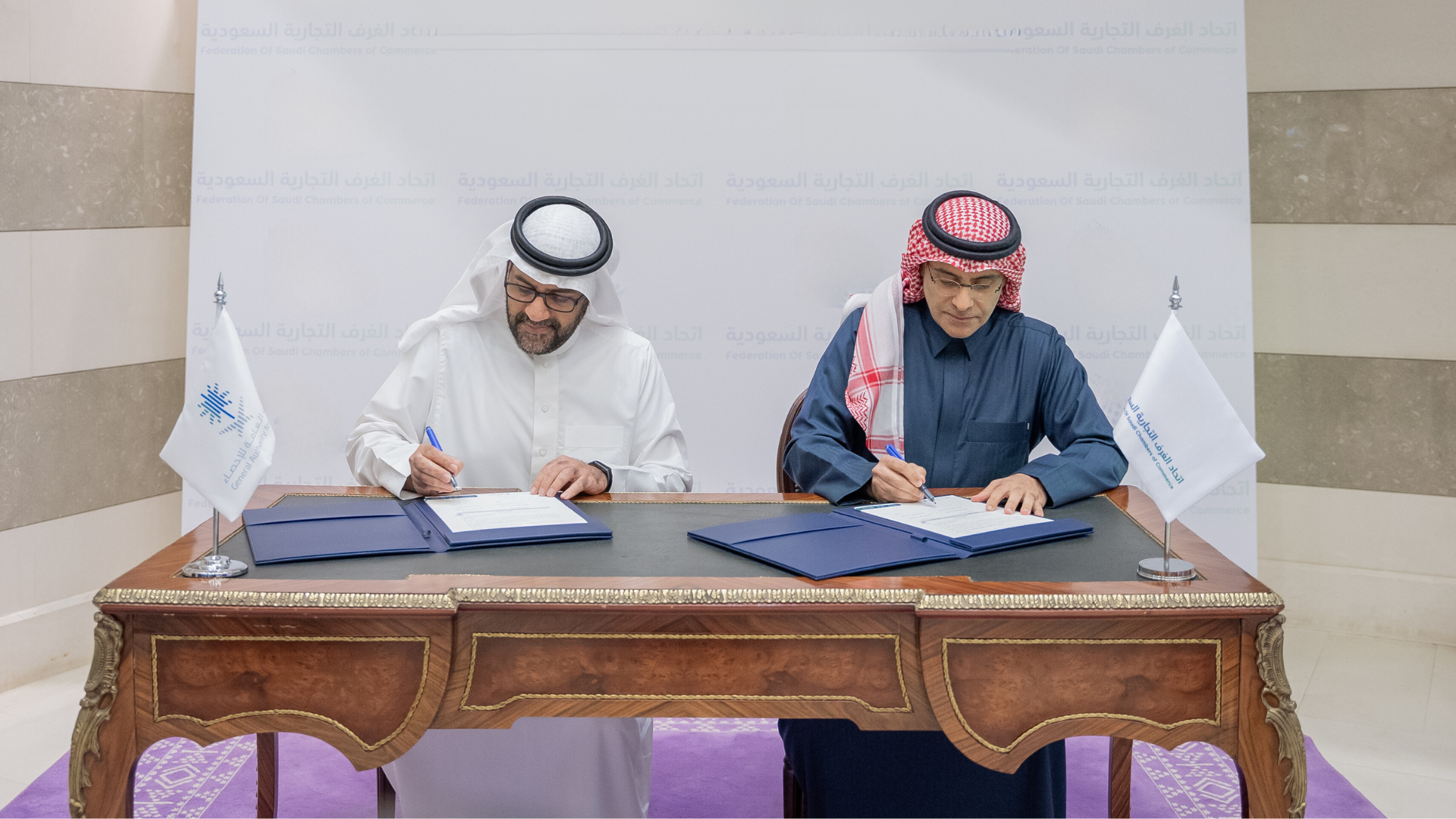
الهيئة العامة للإحصاء توقع مذكرة تفاهم مع اتحاد الغرف السعودية لتطوير المنتجات الإحصائية
Dr. Fahad bin Abdullah Aldossari, the President of the General Authority for Statistics (GASTAT), met with businessmen from the private sector at the headquarters of the Federation of Saudi Chambers (FSC), in the presence of the Acting Secretary General of the Federation of Saudi Chambers, Mr. Waleed H. Alorainan. As part of the meeting, a memorandum of understanding (MoU) was signed to cooperate in the field of statistics and exchange of expertise between (GASTAT) and (FSC). The aim is to contribute to the development and enhancement of economic statistics that support decision-makers and policymakers in both government and private sectors.
During the meeting, the President of (GASTAT) discussed with businessmen and the private sector the pivotal role played by (GASTAT) in providing statistics, economic indicators, and other related information. The steps taken by (GASTAT) within its strategic transformation to develop its statistical products were also reviewed. Additionally, the role of the private sector in enhancing the efforts of (GASTAT) and the integration between them in developing economic indicators and statistical data, including data collection and analysis, was discussed.
The (MoU) emphasizes cooperation in the areas of exchanging expertise and information between the two parties to develop statistical work and programs aimed at raising awareness in private sector establishments about the role and importance of (GASTAT) in performing its national duties. This includes participation in statistical surveys, facilitating access to information, exchanging visits between experts and specialists in relevant statistical fields, and benefiting from databases and information in shared areas. It also includes organizing conferences, seminars, and workshops between the two parties.
The (MoU) was signed by Dr. Fahad Aldossari, the President of (GASTAT), and the Acting Secretary General of the Federation of Saudi Chambers, Mr. Waleed H. Alorainan, in the presence of several staff members from (GASTAT), (FSC), businessmen, and the private sector.
Dr. Fahad Aldossari emphasized that the meeting between (GASTAT) and the private sector comes within the framework of improving performance regarding the development of statistical products and indicators. It aims to identify the needs and opportunities of the private sector in the field of statistical information and data. He also emphasized the importance of integrated work between (GASTAT) and private sector partners, which positively reflects on the success of joint work and enhances cooperation in line with the development and change process that (GASTAT) is undergoing. Additionally, it aims to benefit from advanced statistical programs and products that increase business and investment opportunities in various fields.
From his side, Mr. Waleed H. Alorainan emphasized the importance of cooperation between (GASTAT)and the private sector, given the complementary roles between the two parties. Companies and institutions are the main source of data for GASTAT, while the statistics provided by GASTAT are among the most important sources relied upon by the business sector in studies, analysis, and strategic decision-making. He expressed his hope that this partnership would contribute to meeting the requirements of both parties and understanding the economic statistical developments and future trends for the development of statistical products and private sector opportunities that support the national economy, sustainable development, and the goals of Vision 2030.
It is worth mentioning that (FSC) acts as an umbrella for the business sector and chambers of commerce in the Kingdom. It represents them at the local and international levels and works to develop the role of the private sector in the national economy in coordination with government agencies. It also represents the sector in forums, events, and conferences, and participates in local and international economic decision-making. Additionally, it enhances the Kingdom's trade and investment relations with the world and supports the access of Saudi exports to foreign markets.
GASTAT Obtains the European Institutional Excellence Certificate EFQM
The General Authority for Statistics (GASTAT) obtained the Institutional Excellence Certificate (Qualified by EFQM) from the European Foundation for Quality Management. GASTAT managed to obtain this certificate after achieving compliance with the EFQM model according to the RADAR matrix. This was through the application of institutional excellence standards set by the Foundation, which align with the directions of Saudi Vision 2030.
The certificate was obtained due to commitment to the standards of the European Foundation for Quality Management and the application of its adopted model, which was established in 1989 and is considered the most widely spread around the world. Meeting the model's requirements is one of the directions pursued by several local and international entities in the field of institutional excellence. It enables organizations to achieve high-quality business results within a governance framework that contributes to business sustainability, improves work environments and increases productivity.
This achievement highlights GASTAT's efforts exerted to develop its statistical system by ensuring sustainable quality operations, creating sustainable value for the statistical product, assessing the comprehensive experience, focusing on digital transformation, and utilizing modern technologies and international practices to ensure high efficiency in performance and access to high-quality statistics. The EFQM excellence model, launched by the European Foundation, is a comprehensive framework for corporate management systems, created to assist organizations in their approach towards establishing institutional work, raising the level of performance, meeting the needs of beneficiaries in terms of services, and ensuring sustainability.
In this context, Dr. Fahad bin Abdullah Al-Dossari, President of the General Authority for Statistics, expressed his appreciation for the efforts made to align with the European model of institutional excellence by EFQM. He noted that obtaining this certificate is an important contributor to sustainability and development. It also supports GASTAT and its staff in raising the level of performance and developing their operations, especially since it was achieved through an external evaluation by the European Foundation for Quality Management based on a comprehensive and precise set of practical procedures covering all GASTAT's technical and administrative activities.
He added, "Through continuous institutional planning and development, we have achieved excellence in this critical stage that GASTAT is experiencing, as it is going through a comprehensive transformation at various levels, striving to achieve the highest standards of quality. This comes from the efforts and collaboration of GASTAT staff and the hard work they put in to be part of this success."
It is worth mentioning that the European Foundation for Quality Management is an independent, non-profit organization established in October 1989 when the heads of 67 European companies joined the institution's policy document and declared their commitment to achieving the mission and vision of the European Foundation for Quality Management. The Foundation includes a team of experts and academics to develop the EFQM Excellence Model, a comprehensive framework applicable to any organization, regardless of its size or sector. The Foundation aims to increase the competitiveness and efficiency of all organizations sustainably . It provides its methods and models in more than 30 languages and offers services in over 40 countries worldwide.
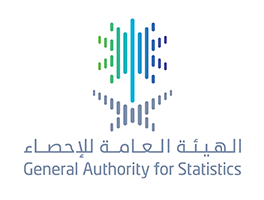
الهيئة العامة للإحصاء: 45.8% من العاملين (18 سنة فأكثر) في المملكة يعملون أكثر من 40 ساعة في الأسبوع
The General Authority for Statistics issued the publication of health and safety at work statistics for the year 2023 in the Kingdom of Saudi Arabia. The publication showed that 45.8% of employees in the Kingdom work for more than 40 hours per week, and 39.6% of employees work for 40 hours per week on average. The actual working hours per day for employees is 8 hours.
The percentage of employees who have been trained on health and safety procedures at work reached 46.6%, while the percentage of employees who have a dedicated health and safety department at their workplace reached 48.7%.
The most common risks faced by employees are standing for long periods of at least four hours daily with a percentage of 28.21%, sitting on a chair for long periods exceeding three continuous hours with a percentage of 28.15%, and moving the upper limbs repeatedly for long periods with a percentage of 17.1%.
7.8% of employees directly or indirectly deal with chemical substances, medical waste, radioactive materials, or toxic gases, while 6.3% of employees face risks such as electrical risks, machinery risks, or drowning.
The percentage of employees who have coverage for basic healthcare reached 89.7%. The most common work-related health issue in the past 12 months is "work-related stress" with a percentage of 3.2%, while 83.5% of employees do not suffer from any work-related health issues.
GASTAT celebrates Gulf Statistics Day with participation of Gulf statistical agencies
The Gulf Cooperation Council (GCC) countries celebrate Gulf Statistics Day under the theme "Statistics for Sustainable Opportunities." This celebration is part of the efforts to enhance statistical work aimed at providing statistical data that supports development plans and achieves the targets of visionary development in the Council's countries.
On this occasion, Dr. Fahad bin Abdullah Aldossari, the President of the General Authority for Statistics, congratulated the employees in the statistical sector. He commended the role of the statistical center of the GCC countries in developing statistical work and coordinating between national statistical centers and planning agencies in the Council's countries. He emphasized that statistics and statistical centers play a prominent role in providing statistical data that contributes to supporting policymakers and decision-makers in the Council's countries.
He added, "The collaborative efforts between statistical centers in the GCC countries have contributed to measuring progress towards achieving the goals of national visions and sustainable development for the Council's countries. This is achieved through joint efforts to enhance performance in terms of exchanging statistical data and implementing the statistical strategic plan. He emphasized the importance of the collaborative relationships among the GCC countries and the extensive cooperation in the field of statistics, providing more opportunities for effective collaboration in the field of information and statistical data."
Statistical work in the Kingdom of Saudi Arabia began early in the year 1349 H (1930) and evolved into an organized effort based on the regulatory, administrative, and technical framework of the General Statistics System issued by Royal Decree No. 23 on 7/12/1379 H (1/6/1960). The General Statistics System regulated the statistical sector by defining the relationship between the General Statistics and Information Department and other entities. This culminated in the issuance of a royal decree in 1436 AH, transforming the General Statistics and Information Department into a public entity named the General Authority for Statistics, endowed with legal personality and financial and administrative independence.
In 1437 H, approval was granted to regulate the General Authority for Statistics. The regulation stipulated that the General Authority for Statistics (GASTAT) is a government entity with an independent legal personality. GASTAT’s board of directors is chaired by His Excellency the Minister of Economy and Planning and consists of the following members: Ministers of Energy, Finance, Human Resources and Social Development, Education, and Industry and Mineral Resources. In addition to the Director of National Information Center, President of the General Authority for Statistics, and two other members specialized in the statistical field.
GASTAT is the only official statistical reference for implementing, supervising, and regulating the statistical work in the Kingdom of Saudi Arabia. It provides statistical products in social, economic, and environmental fields to support policymakers and decision-makers in advancing the implementation of development plans.
It's worth noting that the Ministerial Council of the GCC, convened in Manama, Kingdom of Bahrain, in November 2016 during its 141st session, approved the designation of a Gulf Statistics Day to be observed annually. The significance of this day lies in emphasizing the partnership of the entire society with statisticians and highlighting the vital role statistics play in achieving sustainable development for the Council's countries. It also underscores the strategic role of the Gulf statistical system in decision-making and the development of policies in the region.
GASTAT wins excellence award for website performance and digital content efficiency at the level of government entities 2023
General Authority for Statistics (GASTAT) has been awarded the excellence award for website performance and digital content efficiency, ranking among the top 10 government entities out of a total of 383 government websites for the year 2023. This recognition was received at the Digital Government Forum, held recently under the theme "Our Future is Now" organized by the Digital Government Authority. GASTAT was recognized for its outstanding performance in website efficiency and digital content, and the award was received by Mr. Mohammed Al-Rasheed, Vice President Operations.
In the same context, the General Authority for Statistics is currently implementing an ambitious digital transformation project aimed at achieving a high-quality technological infrastructure that competes regionally and globally. GASTAT also adheres to the highest international standards practiced by specialized institutions in statistical data and information. It seeks to enhance the utilization of its statistical publications and products through the most user-friendly and flexible technological methods. This includes providing users with access to statistical data, the ability to review and download it, as well as presenting the data in ways that contribute to understanding the results and indicators issued by GASTAT.
It is worth mentioning that the Digital Government Forum aims to highlight the achievements of the digital government, showcase its success stories locally and internationally, and enable digital community leaders to meet, communicate, exchange experiences, build partnerships, share successful practices, and discuss challenges. The Forum is also designed to explore modern technological best practices, review future trends of digital governments, and explore investment opportunities in the digital sector in the Kingdom.
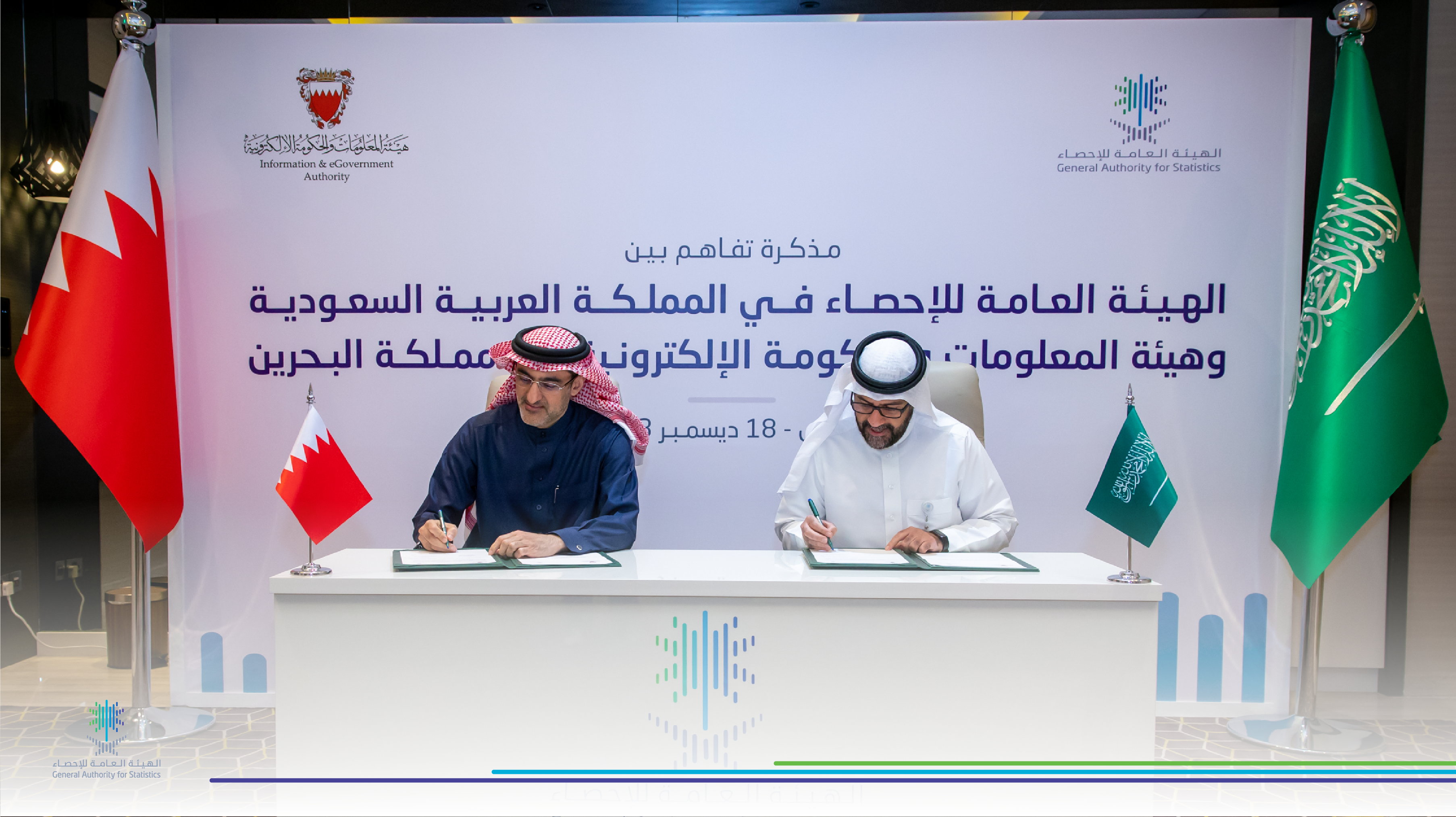
“GASTAT” and Information & eGovernment Authority in the Kingdom of Bahrain sign MoU
The General Authority for Statistics and the Information &eGovernment Authority in the Kingdom of Bahrain have signed a memorandum of understanding( MoU) to cooperate in the field of statistics and exchange of expertise. The aim is also to benefit from the best global practices to develop and enhance statistical work in both countries, in line with international standards, and to support decision-makers and scientific research. The (MoU) was signed by Dr. Fahad bin Abdullah Aldossari, President of the General Authority for Statistics, and Mr. Mohammed Ali Al-Qaed, CEO of the Information &eGovernment Authority in the Kingdom of Bahrain, in the presence of Duaa Sultan Alharban, Deputy Chief Executive, Statistics and Population Registry, and Ms. Lulwa Sami, Director of Communication and Marketing Department at the eGovernment Authority.
The (MoU) includes cooperation in areas such as exchanging expertise and information between the two parties to develop statistical work, including data availability, big data, IT infrastructure, exchange of statistical awareness programs, facilitating access to information, exchanging visits between experts and specialists in relevant statistical fields, and organizing conferences, seminars, and workshops. During the agreed period of the (MoU), which extends for five years, both sides will work on developing joint plans and programs to achieve the desired goals of cooperation between the statistical authorities of Bahrain and Saudi Arabia.
From his side, Dr. Fahad bin Abdullah Aldossari, President of the General Authority for Statistics in the Kingdom of Saudi Arabia, affirmed that the (MoU) aims to enhance the level of mutual cooperation between the two sides and strengthen coordination and integration of efforts in the field of statistics. This includes enhancing quality and efficiency, applying best global practices, and transferring expertise between statistical agencies. It also contributes to supporting the strategic work between the two countries in the statistical sector, aligning with the ongoing development of statistical agencies, and providing new opportunities for effective cooperation with the Kingdom of Bahrain in the field of information and statistical data exchange between the two countries.
He added that the (MoU) contributes to the development of methods and techniques for calculating indicators and providing accurate and up-to-date statistical data to enhance the sustainable development goals, supporting decision-makers and policymakers in both countries. He praised the fruitful cooperation between the General Authority for Statistics and its counterpart, Information &eGovernment Authority in the Kingdom of Bahrain, in addition to the exchange of knowledge and technical expertise between the two countries in the statistical field, leading to further enhancement of mutual cooperation in the future.
On his part, Mr. Mohammed Ali Al-Qaed, CEO of the Information &eGovernment Authority in the Kingdom of Bahrain, praised the signing of the (MoU), affirming that the cooperation between the two countries in the field of statistics is an enduring cooperation, reflecting the strength, durability, and depth of the historical and fraternal relations between the two sides. He also explained that cooperation with the General Authority for Statistics in the Kingdom of Saudi Arabia will contribute to achieving several goals, including enhancing joint work between the two countries, improving the efficiency of statistical systems, and establishing a committee to supervise the plans and programs related to the areas of mutual cooperation included in the (MoU). The committee will oversee the implementation of development areas and overcome any challenges that may arise, in order to make optimal use of advanced statistical experiences, expertise, and programs that enhance the quality of the statistical work system.
Furthermore, the CEO emphasized that the signing of the (MoU) with the General Authority for Statistics stems from the distinguished regional leadership of the Kingdom of Saudi Arabia in the field of statistics. KSA possesses an effective statistical system with innovative practices and a model that regional statistical systems can emulate. He affirmed that leveraging these experiences and rich statistical practices is a real gain for the Bahraini statistical system.
It is worth mentioning that the signing of the (MoU) reflects the belief of the eGovernment Authority and the General Authority for Statistics that enhancing regional and international cooperation contributes to meeting the growing demands for statistical data. This requires a statistical system capable of producing high-quality data in a timely manner, in line with the guidelines, definitions, and classifications adopted by the United Nations and compatible with the best international standards and practices. One of the best ways to keep up with emerging developments in the statistical system is through clear coordination and international cooperation that enables the exchange of best practices and transfer of expertise between statistical systems. Therefore, the signing of the (MoU) between Bahrain and Saudi Arabia is a real gain in facing the challenges and developments in the statistical system.
